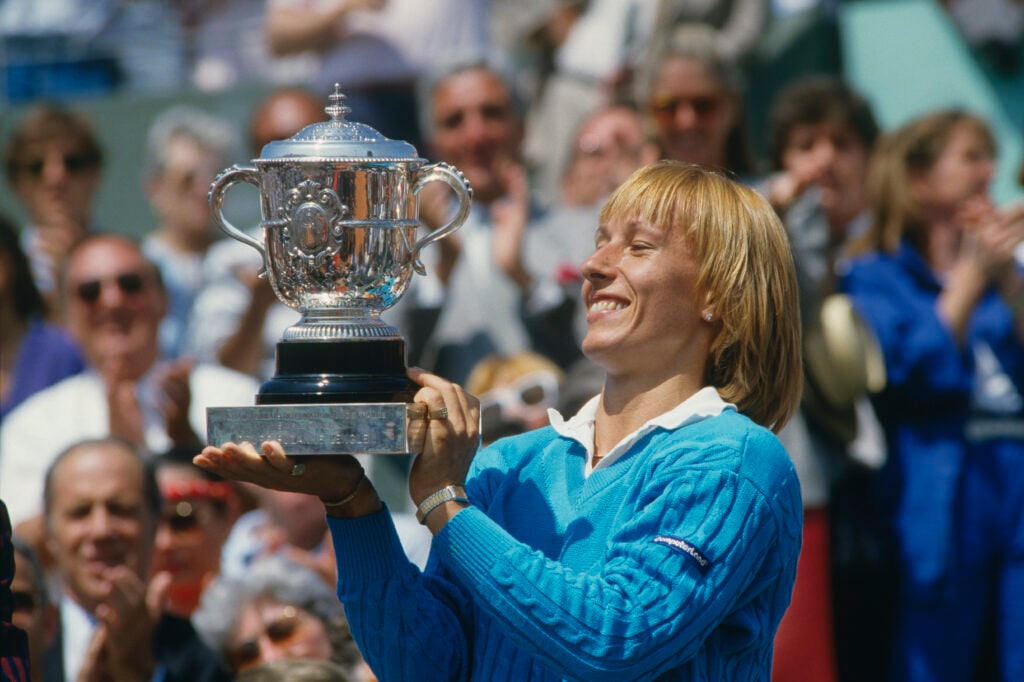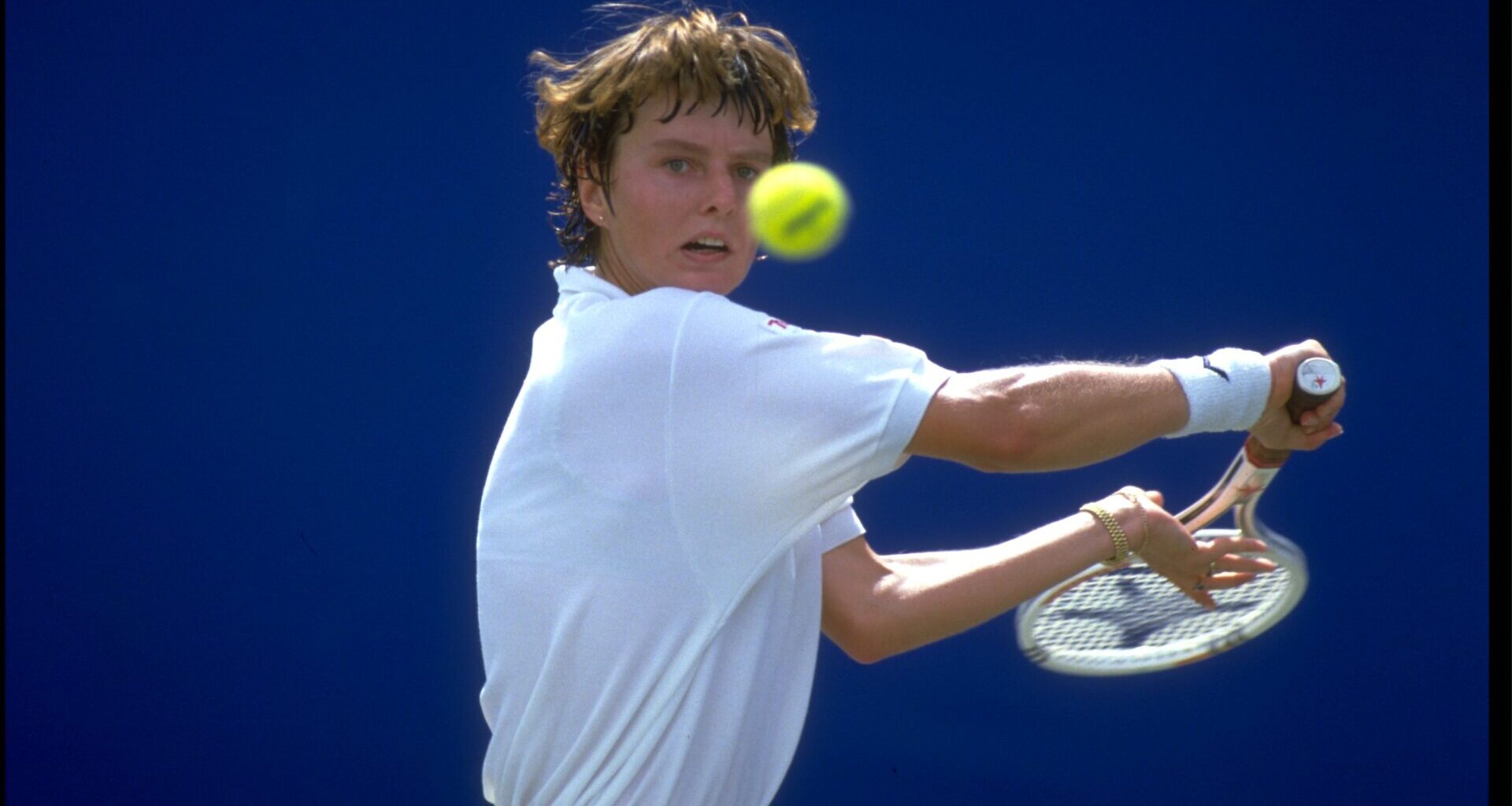Martina Navratilova appeared to be unbeatable leading into the 1984 Australian Open.
Navratilova was already an eight-time Grand Slam champion heading into the 1984 season, as well as being the long-serving world number one.
Despite this, Navratilova would lose in the final of her first tournament of the season in Oakland, California.
She would bounce straight back from this defeat, with Navratilova going on a historic 74-match winning streak.
 Photo by Michel Philippot/Sygma via Getty ImagesHelena Sukova: The WTA player who ended Martina Navratilova’s 74-match winning streak
Photo by Michel Philippot/Sygma via Getty ImagesHelena Sukova: The WTA player who ended Martina Navratilova’s 74-match winning streak
After losing in the final of the WTA tournament in Oakland to Hana Mandlikova, Navratilova would go on to win 74 consecutive matches.
This enabled her to win 13 titles, including three Grand Slams, and Navratilova’s rivalry with Chris Evert was intensified during this run.
Navratilova was so dominant during this period that she only dropped seven sets during these 74 matches.
Title Martina Navratilova won on streak in 1984Player Martina Navratilova beat in the finalU.S. Indoor ChampionshipsChris EvertVirginia Slims ChampionshipsChris EvertLipton WTA ChampionshipsChris EvertUnited Airlines Tournament of ChampionsLaura ArrayaRoland GarrosChris EvertEastbourne InternationalKathy JordanWimbledonChris EvertVirginia Slims of NewportGigi FernandezUnited Jersey Bank ClassicPam ShriverUS OpenChris EvertMaybelline ClassicMichelle TorresVirginia Slims of New OrleansZina GarrisonNSW Building Society OpenAnn Henricksson
Navratilova held every Grand Slam title at this time, but she still wanted to complete the Calendar Slam, which involves winning every single major tournament in the same season.
Nowadays, the Australian Open is the first major tournament of the year, but between 1977 and 1986 it was actually held at the end of the season instead in November and December.
At this point in history, Maureen Connolly and Margaret Court were the only women to complete the Calendar Grand Slam in singles.
Navratilova made a good start in her bid to join them, reaching the semifinals after dropping just one set.
This is where she would play ninth seed Helena Sukova, who had already achieved her best result at a major tournament at just 19 years old.
Navratilova had won her three previous meetings against Sukova, and things appeared to be going as expected after she won the first set, 6-1.
However, this is when things started to turn and Sukova levelled things up after winning the second set, and led the decider 3-0.
Navratilova made a comeback, before Sukova recomposed to stun the world number one and end her 74-match winning streak after beating her, 1-6 6-3 7-5.
Sukova lost in the final to Navratilova’s rival, Evert, and lost three more Grand Slam singles finals in her career.
However, the Czech found a lot of Grand Slam success on the doubles court, winning nine women’s doubles titles and five mixed doubles crowns.
What Martina Navratilova said after Helena Sukova ended her streak
This was a hugely shocking defeat for Navratilova, who saw her best ever opportunity to complete the Calendar Slam come crashing down.
When reflecting on this defeat, Navratilova told the press that she was understandably disappointed, but was trying to have some perspective.
“How important is anything?” questioned Navratilova. “It hurts, but I’ll get over it. I still have two arms, two legs and a heart. If I’d have won, I’d have done it all,” she said. “If I lost I had to start from scratch. Both are hard to cope with.”
Navratilova spoke more about the match itself, and suggested that she would have won the match if she had played her top level.
“I certainly didn’t play my best, but I did my best on the day,” added Navratilova. “I know I’m the better player, but today she was the better player.”
Navratilova was never able to complete the singles Calendar Slam in her career, but she still holds the record for the longest winning streak in the Open Era.
The only WTA player to have completed the Calendar Slam in singles since then is Steffi Graf, who also won an Olympic gold in 1988.

